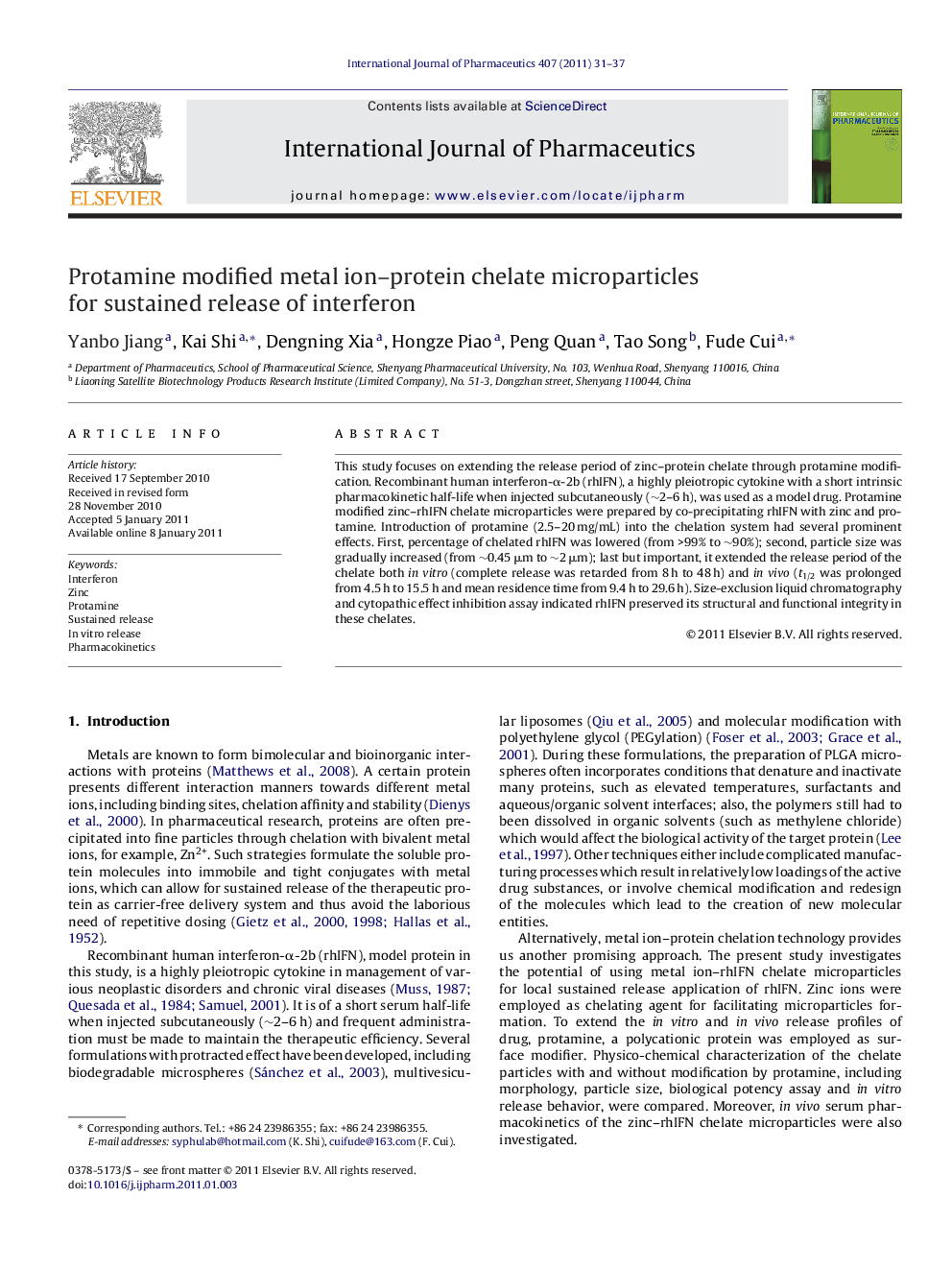| Article ID | Journal | Published Year | Pages | File Type |
|---|---|---|---|---|
| 2503753 | International Journal of Pharmaceutics | 2011 | 7 Pages |
This study focuses on extending the release period of zinc–protein chelate through protamine modification. Recombinant human interferon-α-2b (rhIFN), a highly pleiotropic cytokine with a short intrinsic pharmacokinetic half-life when injected subcutaneously (∼2–6 h), was used as a model drug. Protamine modified zinc–rhIFN chelate microparticles were prepared by co-precipitating rhIFN with zinc and protamine. Introduction of protamine (2.5–20 mg/mL) into the chelation system had several prominent effects. First, percentage of chelated rhIFN was lowered (from >99% to ∼90%); second, particle size was gradually increased (from ∼0.45 μm to ∼2 μm); last but important, it extended the release period of the chelate both in vitro (complete release was retarded from 8 h to 48 h) and in vivo (t1/2 was prolonged from 4.5 h to 15.5 h and mean residence time from 9.4 h to 29.6 h). Size-exclusion liquid chromatography and cytopathic effect inhibition assay indicated rhIFN preserved its structural and functional integrity in these chelates.
Graphical abstractFigure optionsDownload full-size imageDownload as PowerPoint slide
